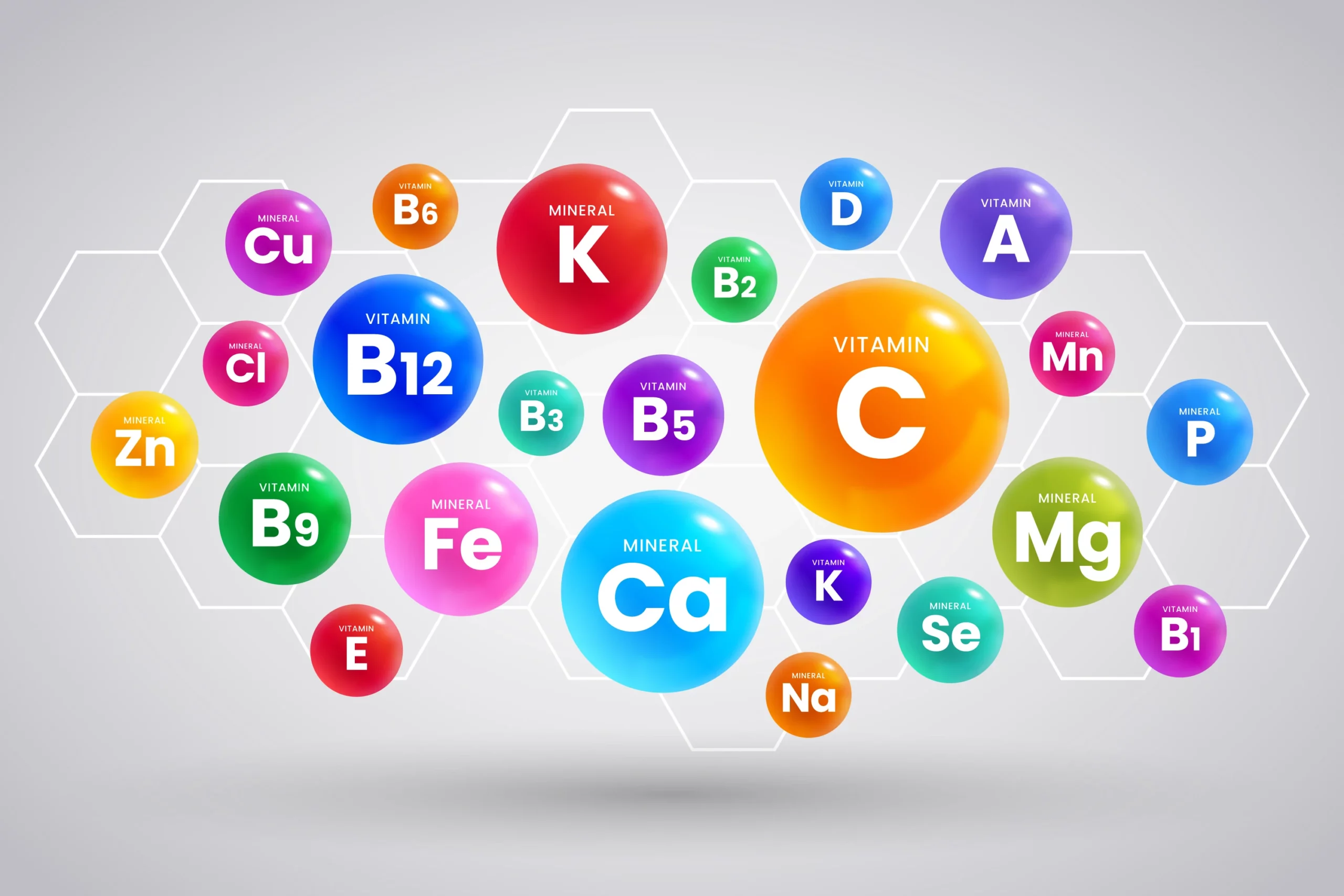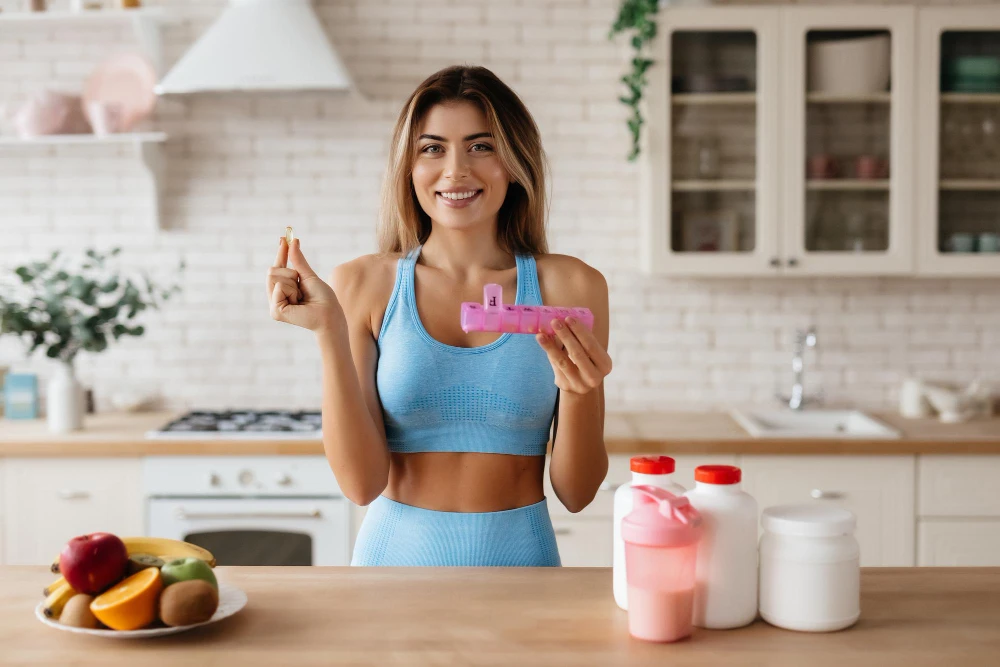Are you struggling with low testosterone levels? Do you feel like your energy and motivation levels have hit rock bottom? If yes, then it’s time to take a closer look at the essential vitamins that can help boost your testosterone levels.
In this blog, we will discuss everything you need to know about Low Testosterone and how vitamins can play a crucial role in boosting the hormone production. From understanding the connection between vitamins and testosterone levels to listing out the essential vitamins for boosting testosterone, we have got it all covered.
We will also throw light on how to incorporate these vitamins into your diet, natural ways to boost testosterone levels, potential side effects of overconsumption, and much more.
So sit tight and read on as we take you on a journey towards better hormonal health.
The Role of Testosterone in the Human Body
Testosterone plays a vital role in regulating sex drive and fertility, while also contributing to muscle mass, bone density, and red blood cell production. As a sex hormone, it impacts various aspects of overall wellness. Testosterone deficiency can lead to symptoms such as low libido, erectile dysfunction, and decreased muscle strength. It is important to maintain healthy levels of testosterone for optimal sexual function and overall health. The testes are responsible for testosterone production, and the hormone is also influenced by factors like nutrition and vitamin deficiencies.

Low Testosterone: Causes and Symptoms
Testosterone is a hormone that plays a vital role in male development and health. It is responsible for many physical characteristics, including sex drive, muscle mass, bone density, and body hair growth. Testosterone levels naturally decline with age, but other conditions or circumstances can also cause low testosterone.
Causes of low testosterone
- Age: Testosterone levels begin to decline gradually after age 30.
- Medical conditions: Certain medical conditions can affect testosterone production, such as Klinefelter syndrome, pituitary gland disorders, and chronic kidney disease.
- Medications: Some medications can lower testosterone levels, such as corticosteroids, chemotherapy drugs, and certain antidepressants.
- Lifestyle factors: Certain lifestyle factors, such as obesity, heavy alcohol use, and stress, can also contribute to low testosterone.
Symptoms of low testosterone
The symptoms of low testosterone can vary from person to person and may be mild or severe. Some common symptoms include:
- Reduced sex drive
- Erectile dysfunction
- Loss of muscle mass and strength
- Increased body fat
- Fatigue
- Depression
- Difficulty concentrating
- Decreased bone density
How Do Vitamins Influence Testosterone Levels?
Vitamin D supplementation has shown promising results in increasing testosterone levels. Additionally, zinc plays a crucial role in testosterone synthesis and maintaining healthy levels. By incorporating these vitamins into your diet, you can support your testosterone levels naturally.

Essential Vitamins for Boosting Testosterone
- Vitamin D: The Sunshine Vitamin
Vitamin D, also known as the sunshine vitamin, is primarily obtained through sunlight exposure. It plays a crucial role in supporting immune function and bone health. Vitamin D deficiency can lead to various health issues, including weakened immunity and decreased bone density. Therefore, it is important to ensure adequate sun exposure or consider supplementation to maintain optimal vitamin D levels. By incorporating vitamin D into your daily routine, you can support your overall wellness and enhance your immune function and bone health.
- Zinc: A Vital Mineral for Testosterone
Zinc, a vital mineral for testosterone, is essential for the production of the male sex hormone and sperm. It also plays an important role in maintaining prostate health and supporting the immune system. Adequate zinc levels can help optimize testosterone production and contribute to overall wellness. Studies have shown that zinc supplementation can increase serum testosterone levels, especially in individuals with zinc deficiency. Ensuring sufficient intake of zinc-rich foods or considering zinc supplements may be beneficial for individuals looking to support their testosterone levels naturally.
- Vitamin B6: The Energy Booster
Supporting testosterone production and metabolism, vitamin B6 is a vital nutrient. Its role extends beyond hormone regulation, as it also plays a key part in energy production and brain health. By including foods rich in vitamin B6, such as poultry, fish, and bananas, you can naturally boost your energy levels and support overall well-being. This essential vitamin not only helps optimize testosterone levels but also contributes to cognitive function and vitality. So, incorporating vitamin B6 into your diet can be a game-changer for your energy and overall health.
- Magnesium: The Multi-Functional Mineral
Magnesium, a multi-functional mineral, plays a crucial role in regulating testosterone levels and enhancing exercise performance. It is also essential for supporting muscle and nerve function, as well as maintaining bone health. By ensuring adequate magnesium intake, you can optimize your testosterone levels and reap the benefits of improved exercise performance, enhanced muscle function, and overall bone health. Incorporating magnesium-rich foods or considering magnesium supplements can help you meet your daily requirements and support optimal testosterone levels for enhanced wellness.
How to Incorporate These Vitamins into Your Diet?
- Dietary Sources of Vitamin D
Fatty fish like salmon and mackerel are excellent sources of vitamin D, while fortified dairy products such as milk and yogurt provide this essential nutrient. Egg yolks also contain small amounts of vitamin D, and mushrooms, especially those exposed to sunlight, are good sources too. Another concentrated source is cod liver oil. By incorporating these dietary sources into your meals, you can ensure you’re getting enough vitamin D to support your overall health and maintain optimal testosterone levels.
- The Best Foods High in Zinc
When it comes to boosting your zinc levels, there are several food options that can help. Oysters, for example, contain more zinc than any other food, making them a top source. Beef and lamb are also good sources of zinc, while pumpkin seeds offer a rich plant-based option. If you’re looking for legumes, chickpeas and lentils provide significant amounts of zinc. And when it comes to nuts, cashews and almonds are both great choices as they contain zinc as well. Incorporating these foods into your diet can help ensure you’re getting enough zinc to support your overall health and testosterone levels.
- Getting Enough Vitamin B6 from Your Meals
Including vitamin B6 in your meals is essential for maintaining optimal testosterone levels. Poultry, such as chicken and turkey, are excellent sources of this important vitamin. Fish like salmon and tuna also contain vitamin B6, making them a nutritious choice. Additionally, bananas, potatoes with their skin on, and leafy greens like spinach provide ample amounts of vitamin B6. By incorporating these foods into your diet, you can ensure that you’re getting enough vitamin B6 to support healthy testosterone levels.
Can Supplements Help Boost Testosterone?
Supplements have shown potential in boosting testosterone levels naturally. For example, ashwagandha and fenugreek extract are popular choices. Zinc supplementation may increase testosterone in those with deficiencies, while vitamin D and magnesium supplementation have also been linked to higher levels.

Why Good Sleep is Crucial for Healthy Testosterone Levels?
Quality sleep plays a crucial role in maintaining healthy testosterone levels. Lack of sleep can lead to a decrease in testosterone levels, impacting mood, energy, and overall well-being. Deep sleep stages are particularly important for testosterone production. On the other hand, sleep deprivation can contribute to weight gain and insulin resistance, further affecting testosterone levels. To improve sleep quality, consider creating a comfortable sleep environment and establishing a bedtime routine. Prioritizing good sleep habits can have a positive impact on testosterone levels and overall health.
Why is it Necessary to Consult with a Healthcare Professional?
Consulting with a healthcare professional is necessary for low testosterone because it requires a proper diagnosis and personalized treatment plan. They can also help monitor your testosterone levels, adjust treatment as needed, and ensure there are no interactions or side effects with vitamins and supplements.
Does Everyone Need to Worry About Low Testosterone?
Not everyone needs to worry about low testosterone. It is more common in older men and those with certain health conditions. Symptoms may include decreased sex drive, fatigue, and muscle loss. If you are concerned, consult a healthcare professional for personalized advice.
Who are More Likely to Experience Low Testosterone?
Men over the age of 50 and those with certain medical conditions like obesity, diabetes, and HIV/AIDS are at higher risk of experiencing low testosterone. Additionally, men who have undergone cancer treatments such as radiation or chemotherapy may also have lower testosterone levels. Lifestyle factors such as excessive alcohol consumption and lack of exercise can also contribute to low testosterone.
How Long Does It Take to See Results?
Results from efforts to boost testosterone levels can vary in terms of time required for noticeable changes. Depending on individual factors like age and overall health, results may be seen within weeks or months of consistent efforts. Achieving optimal results typically involves a combination of lifestyle changes and supplementation, so patience and consistency are key.
Can You Really Boost Your Testosterone Levels Overnight?
Boosting testosterone levels overnight is not realistic. Natural methods take time for the body to adjust and produce more testosterone. Quick fixes or artificial boosts may have temporary effects. Gradual improvements in lifestyle, diet, and exercise can sustainably enhance testosterone levels. Consultation with a healthcare professional is recommended for personalized guidance.
Let’s Sum Up
Boosting testosterone levels requires a comprehensive approach that includes proper nutrition, regular exercise, and healthy lifestyle choices. By incorporating essential vitamins such as Vitamin D, Zinc, Vitamin B6, and Magnesium into your diet, you can support healthy testosterone production. It’s important to note that while supplements can be helpful, they should be used in conjunction with a balanced diet and under the guidance of a healthcare professional. Remember, everyone is different, and what works for one person may not work for another.



